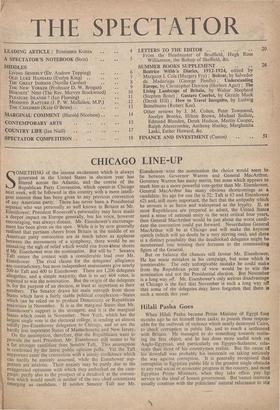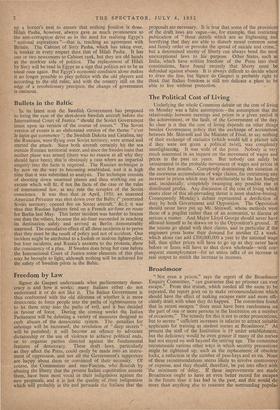Hilali Pasha Goes
When Hilali Pasha became Prime Minister of Egypt four months ago he set himself three tasks; to punish those respon- sible for the outbreak of violence which nearly destroyed Cairo, to check corruption in public life, and to reach a settlement with Britain. He managed to do something towards realis- ing the first object, and he has' done more useful work on Anglo-Egyptian, and particularly on Egypto-Sudanese, rela. tions than most of his countrymen realise. But the cause of his downfall was probably his 'insistence on taking seriously the war against corruption. It is generally recognised that corruption in Egyptian public life is the greatest single obstacle to any real social or, economic progress in the country, and most Egyptian Prime Ministers, when they take office, pay lip service to the ideal of honest government. But 'vested interests usually combine with the politicians' natural reluctance to stir up a hornet's nest to ensure that nothing positive is done. Hilali Pasha, however, always gave as much prominence to the anti-corruption drive as to the need for realising Egypt's " national aspirations "—that is, reaching an agreement with Britain. The Cabinet of Sirry Pasha, which has taken over, is weaker in every respect than that of Hilali Pasha. It has one or two newcomers to Cabinet rank, but they are old hands at the murkier side of politics. The replacement of Hilali by Sirry will be read in Egypt as a sign that politics are to be as usual once again. But Egypt's economic condition alone makes it no longer possible to play politics with the old players and according to the old rules; and with the country still on the edge of a revolutionary precipice, the change of government is ominous.



























































 Previous page
Previous page